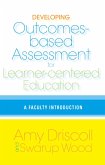Standardized tests have become the gateway to higher education . . . but should they be?For more than seventy-five years, standardized tests have been considered a vital tool for gauging students' readiness for college. However, few people-including students, parents, teachers, and policy makers-understand how tests like the SAT or ACT are used in admissions decisions. Once touted as the best way to compare students from diverse backgrounds, these tests are now increasingly criticized as being biased in favor of traditionally privileged groups. A small but growing number of colleges have made such testing optional for applicants.Is this the right way to go? Measuring Success investigates the research and policy implications of test-optional practices, considering both sides of the debate. Does a test-optional policy result in a more diverse student body or improve attainment and retention rates? Drawing upon the expertise of higher education researchers, admissions officers, enrollment managers, and policy professionals, this volume is among the first to investigate the research and policy implications of test-optional practices. Although the test-optional movement has received ample attention, its claims have rarely been subjected to empirical scrutiny. This volume provides a much-needed evaluation of the use and value of standardized admissions tests in an era of widespread grade inflation. It will be of great value to those seeking to strike the proper balance between uniformity and fairness in higher education. Contributors: Andrew S. Belasco, A. Emiko Blalock, William G. Bowen, Jim Brooks, Matthew M. Chingos, James C. Hearn, Michael Hurwitz, Jonathan Jacobs, Nathan R. Kuncel, Jason Lee, Jerome A. Lucido, Eric Maguire, Krista Mattern, Michael S. McPherson, Kelly O. Rosinger, Paul R. Sackett, Edgar Sanchez, Dhruv B. Sharma, Emily J. Shaw, Kyle Sweitzer, Roger J. Thompson, Meredith Welch, Rebecca Zwick
Dieser Download kann aus rechtlichen Gründen nur mit Rechnungsadresse in A, B, BG, CY, CZ, D, DK, EW, E, FIN, F, GR, HR, H, IRL, I, LT, L, LR, M, NL, PL, P, R, S, SLO, SK ausgeliefert werden.









